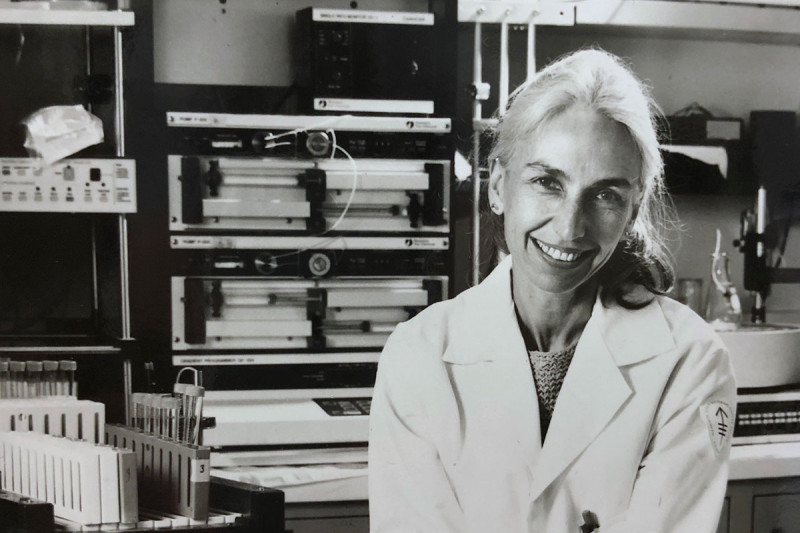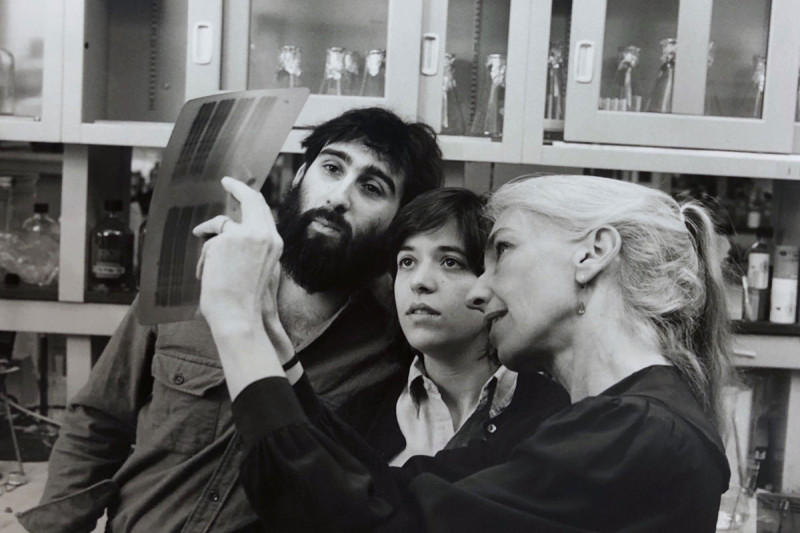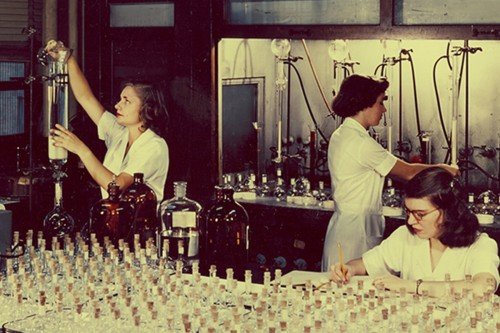When Paul Marks became president of MSK in 1980, among the first things he did was recruit a crop of stellar scientists to strengthen research capabilities at the Sloan Kettering Institute. One of those scientists was molecular biologist Ora Mendelsohn Rosen, who, along with Jerard Hurwitz, co-founded SKI’s Molecular Biology Program.
Dr. Rosen had been chairperson of the Department of Molecular Pharmacology at Albert Einstein College of Medicine. She joined SKI in 1984 and, in 1987, was named the Abby Rockefeller Mauzé Chair of Experimental Therapeutics.
Dr. Rosen’s area of expertise was the biology of insulin, the hormone that stimulates cells to take up glucose. In 1985, working with scientists at Genentech, she cloned the gene for the insulin receptor — meaning she determined the sequence of DNA that specifies the amino acids making up the protein. That sequence demonstrated the uniqueness of the insulin receptor among the new class of cellular switches called tyrosine kinases. One of insulin’s secrets had been solved.
In addition to being a world-class scientist, Dr. Rosen had a keen eye for recognizing talent in others. She played a role in the recruitment of Joan Massagué, currently SKI’s Director, to chair the institute’s newly formed Cell Biology Program in 1989. She also served as a mentor to him.
“I was very young at the time and had no experience in institutional leadership, so I relied on her for advice,” Dr. Massagué recalls. “I learned from her how to size up scientists and how to identify quality. From the get-go, Ora was my point person.”
For her many contributions to science, Dr. Rosen was elected to the National Academy of Sciences in 1989. Tragically, her promising career was cut short when she died of breast cancer a year later at age 55.






